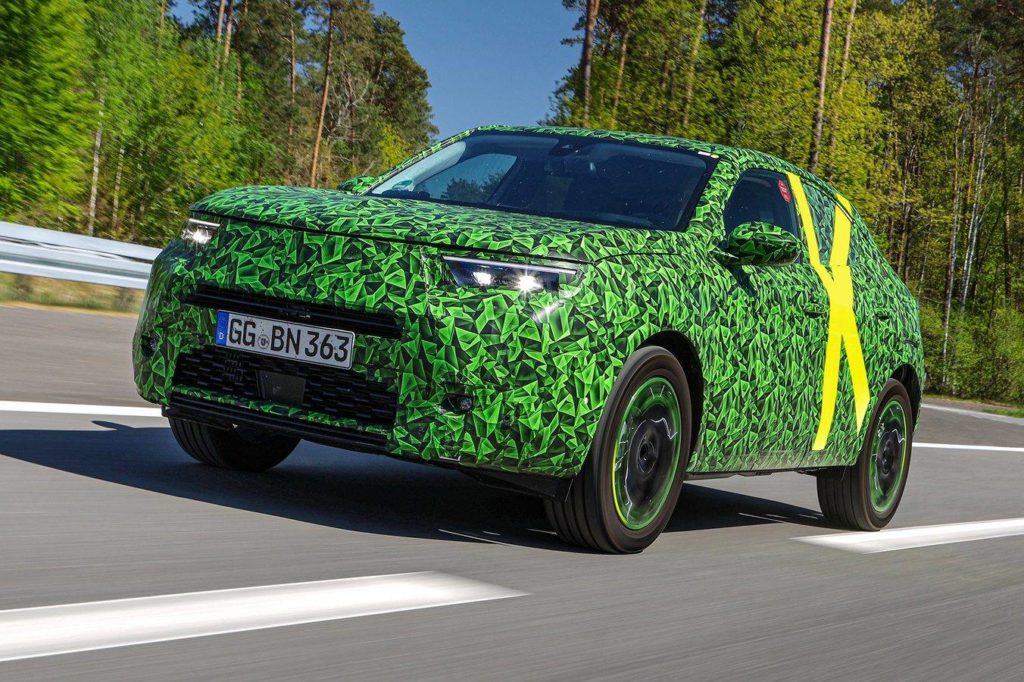Opel continues to reveal new data and images of the camouflaged vehicle to make the wait more enjoyable. In its latest video, the firm once again shows the model covered with a striking green vinyl. However, the front design of the vehicle can now be seen more clearly, the electric version of which Mokka-e will be responsible for releasing the “Opel Vizor.” A transparent methacrylate plate that will encompass both the grille and the headlights under a single piece, following the steps of the GT X Experimental Concept prototype.
Liverpool Football Club manager Jürgen Klopp is an ambassador for the Opel brand and has had the opportunity to test drive the new Mokka-e for a few kilometers. According to the ex-footballer, the model is an enjoyable car. The second generation of the Mokka will be based on the CMP modular platform of the French group PSA (Peugeot-Citroën, Opel), prepared to accommodate both thermal and 100% electric motors.
According to Opel, the use of high-resistance steels has allowed the vehicle’s weight to be contained as much as possible without compromising its body’s resistance. Thus, the new Mokka weighs “up to 120 kg less” than the previous model despite having almost the same wheelbase and tires of similar size. This saving will be very beneficial for the electric version since it will partially offset the extra weight that the batteries will entail.
Everything seems to indicate that the new Opel Mokka will derive directly from the DS 3 Crossback, PSA’s premium B-SUV. This model is 4.12 meters long, so it is possible that the second generation Mokka is slightly shorter than the current one (4.28 meters long) despite having a similar wheelbase.
Although its technical specifications have not yet been confirmed, it is expected that the Mokka-e will share its mechanics with the rest of the PSA electric cars based on the e-CMP platform. Therefore, it will surely equip a 136 hp and 260 Nm engine of Continental origin and a battery of 50 kWh gross with liquid cooling and CATL cells. As well as an autonomy of about 320 km under the European WLTP approval cycle, alternating load at 11 kW (recovering 100% of autonomy in 5 hours) and continuously at 100 kW (recovering 80% of autonomy in 30 minutes).

